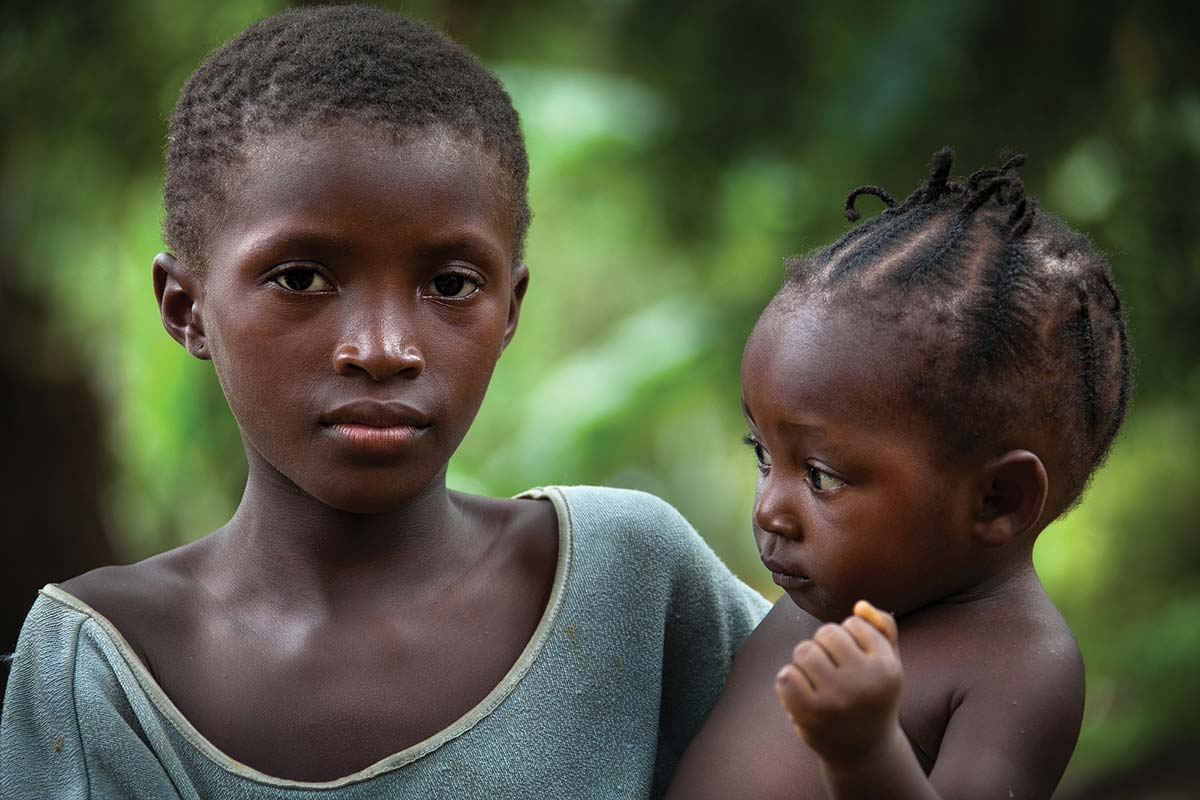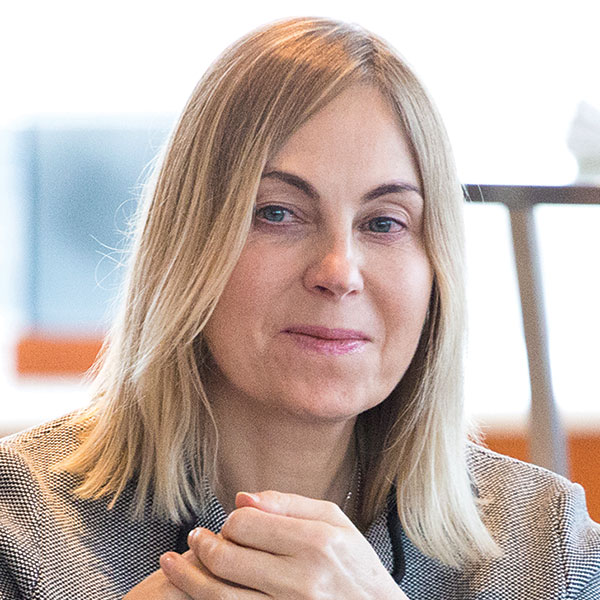G20 Executive Talk Series
September 2016
Global Health
Authored by: Tatiana Mohaghan
Fighting Ebola:
Russia Offers a Ground-breaking Solution
Where there is an efficient public-private partnership, there is a solution to the world’s threats.
The world learned about the threat of Ebola in 2014 when the virus infected 28,616 people and killed 11,300, mostly in Guinea, Liberia and Sierra Leone. In addition to the massive human loss, the epidemic also jeopardized the macroeconomic stability as well as food security, human resources and private sector development in the Ebola-affected states. It also exposed numerous humanitarian problems.
Thousands of fatalities in West Africa have galvanized the global community into action. As a result, governments joined forces in the fight against dangerous epidemics worldwide. Unfortunately, it usually takes an event such as the 2014 Ebola outbreak – and public alarm in developed countries about potential infection – to trigger significant action. However, that was the starting point for the global consolidation in the face of the global threat. Russia became one of the most active participants in the combat against Ebola from the very beginning.
Russia has demonstrated its commitment to the protection of global public health through the development of a unique anti-Ebola vaccine. The potential of this vaccine to confront major contagious biological threats is fundamental to the successful international teamwork in response to serious diseases in Africa and other parts of the world.
It took several months for the virus to evolve, when the world realized the scale of the problem. Such delay was not entirely unexpected given the lack of the global information exchange. Practice shows that there must be a global system of rapid and efficient information flows that will enable international organizations, governments and private sector to put their heads together in the combat against such emergencies. This, in turn, confirms the need for public-private partnerships. In this regard, Russia’s most recent experience of the public-private partnership in providing assistance to the Republic of Guinea is an excellent example when governments and business can achieve better results in tandem.
What is so special about Russia’s experience? First, the mortal virus has been eventually contained, which indicates that the results of the partnership are by all means groundbreaking. Second, the private side of the partnership was represented by Russia’s UC RUSAL (referred to as ‘RUSAL’), which is among the most proud members of ICC Russia.
RUSAL, as Russia’s largest foreign investor in Guinea, implemented its own anti-Ebola projects in this country. RUSAL was among the first to accept the challenge: not only did the company decide to continue its operations in Guinea, but it also actively supported the anti-Ebola initiatives of the Russian government, forging a true public-private partnership against Ebola.
In April 2014, RUSAL donated medicines and hygiene items to the Ministry of Health of Guinea and assisted in equipping mobile sanitary posts in the autonomous sea port of Conakry.
Since August 2014, RUSAL has been providing logistical support to a special anti-epidemic team of the Russian Federal Service for Surveillance on Consumer Rights Protection and Human Wellbeing (Rospotrebnadzor) and a mobile anti-epidemic research laboratory in Guinea.
In November 2014, RUSAL was heavily involved in the deployment of a mobile hospital, which was later donated to the Republic of Guinea under the Russian President’s decree. RUSAL organized complex logistics support to deliver mobile hospital equipment to Guinea. The company also ensured the safe transportation of the cargo under escort to its place of storage. RUSAL supervised on-site preparatory works for the hospital, provided accommodation for Russian military medics and equipped them with requisite resources.

![]() Thousands of fatalities in West Africa have galvanized the global community into action. As a result, governments joined forces in the fight against dangerous epidemics worldwide.
Thousands of fatalities in West Africa have galvanized the global community into action. As a result, governments joined forces in the fight against dangerous epidemics worldwide.![]()
It took a remarkably short period of time for RUSAL to build and launch one of the most modern centres to combat viral diseases in West Africa – the Centre for Microbiological Research and Treatment of Epidemic Diseases located in Kindia. The Centre represents a comprehensive medical facility, bringing under one roof an infection hospital, a provisional hospital, a mobile laboratory and a blood and plasma transfusion department with a laboratory. “I strongly believe that sustainable business operating globally should be well prepared to address any challenges, and epidemic is not an exception. I am proud that RUSAL is the only public company which realized such an important large-scale project to stop Ebola virus in Guinea”, remarked Oleg Deripaska, President of RUSAL, who personally coordinated this programme.
During the outbreak, the Centre operated as a hospital for the treatment of Ebola-infected patients and made over 8,000 tests on biological materials to timely detect and fight the virus. None of the hospital staff was infected thanks to the high sanitary standards implemented in the facility.
Today, the epidemic in West Africa has been eventually contained. The Centre in Kindia, however, continues its research activities focusing on detection, treatment and prevention of infectious and dangerous diseases such as Ebola. Furthermore, the Centre is expected to lead the anti-Ebola vaccination of Guinean patients with the vaccine successfully developed by Russian scientists at the country’s leading medical and biological research institution – the Russian State Gamaleya Institute for Epidemiology and Microbiology in Moscow. Driven by the need to win international recognition, ICC Russia teamed up with the Ministry of Health, Rospotrebnadzor and the Ministry of Defence to organize a round table under the title “The Russian Ebola vaccine: first lessons and future prospects” on March 15. At this round table delegates from the Republic of Guinea received from the Russian Minister of Health all the documentation required to initiate clinical trials against Ebola virus.
The vaccine was solemnly presented at the high-level meeting “Russian vaccine against Ebola: prospects for joint activities” on May 23 organized by ICC Russia in cooperation with the Ministry of Health of Russia on the occasion of the World Health Assembly at the UN Palace of Nations in Geneva, Switzerland. The development of Russia’s vaccine received international recognition and was personally highlighted by Margaret Chan, Director-General of the World Health Organization.
The considerable efforts of the global community, and Russia’s involvement in particular, helped bring the epidemic under control. However, the possibility of a similar outbreak remains, which in turn dictates the need for the timely and efficient response.
Policymakers are increasingly focusing their efforts on better preparation for humanitarian crises in order to mitigate their human and financial cost. The success of the anti-Ebola campaign demonstrates that global partnership between governments, business and scientists is more than real and it enables us to respond to challenges that might seem unmanageable at first sight.

Tatiana Monaghan has been ICC Russia Secretary General of the Russian National Committee of the International Chamber of Commerce since 2000. From 1991 to 1996, she worked as a senior advisor for the World Economic Forum (Davos, Switzerland) on Russia and CIS countries. Ms Monaghan’s contribution resulted in Russia and other CIS countries having become active participants of this Forum. In 1996, Ms Monaghan joined ICC Paris, where she headed Russia and CIS Division. The 16 years’ successful functioning of ICC Russia is entirely attributed to her personal initiative and considerable involvement. Since 2003, Ms Tatiana Monaghan has been a member of the Working Group on Russia’s membership in WTO under the RF State Council.